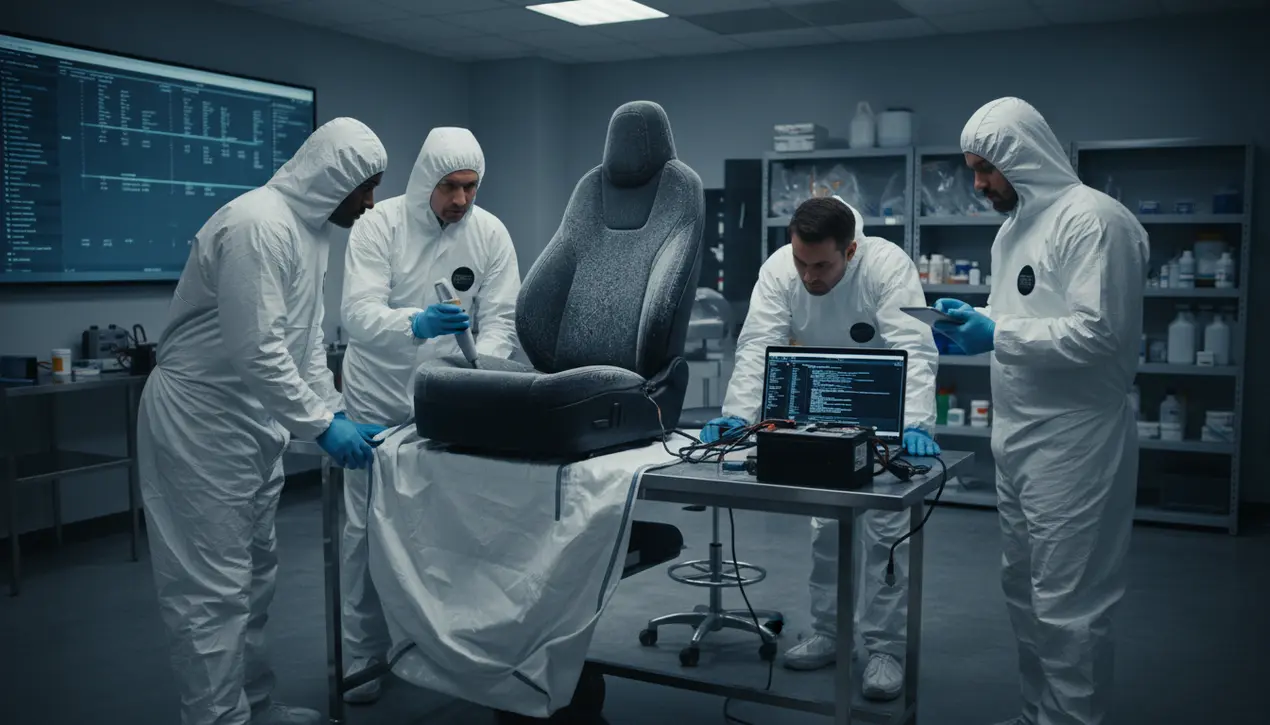
Otherlaw & courtsCriminal Cases
Investigators Probe Refrigeration of Body Before Tesla Discovery
OL
Oliver Scott
15 hours ago7 min read2 comments
The chilling detail that the body discovered in a Tesla vehicle may have been refrigerated or frozen prior to its discovery introduces a profound complication for forensic investigators, transforming a straightforward evidence-gathering mission into a high-stakes analytical puzzle with significant implications for the timeline of events. This isn't merely a procedural footnote; it's a core variable that threatens to obfuscate the most fundamental question in any death investigation: the time of death.Pinpointing this moment relies on a delicate symphony of biological markers—body temperature, liver mortis, rigor mortis, and the advanced stages of decomposition—all of which are meticulously calibrated against ambient conditions. The introduction of artificial cooling, however, acts as a wildcard, effectively pausing or dramatically slowing these natural processes.Imagine a clock submerged in ice; its hands freeze, rendering it useless for telling time. Similarly, a refrigerated body presents a crime scene out of temporal context, where the evidence tells a story that begins not at the moment of death, but potentially days or weeks later when the preservation ceased.This scenario forces investigators to pivot from a standard autopsy to a multi-disciplinary forensic audit. They must now scrutinize the Tesla’s own intricate digital ledger—its onboard computer logs, location history, and even the power consumption data of its climate control system, if applicable—to cross-reference against cellular pings, financial transactions, and witness statements, building a circumstantial timeline to compensate for the corrupted biological one.From a risk analysis perspective, this case establishes a worrying precedent. As smart vehicles and connected homes become more sophisticated, they also become potential instruments for obscuring evidence, creating new categories of forensic countermeasures.We must consider the scenario planning: if a vehicle can be turned into a mobile morgue, what does that mean for jurisdictional complexities in cross-border cases, or for the burden of proof in legal proceedings? The core challenge here is one of signal versus noise. The refrigeration is a powerful signal of premeditation, yet it creates overwhelming noise in the empirical data. The ultimate ruling will hinge not just on what the evidence reveals, but on a court’s interpretation of the intentionality behind this act of preservation—a modern-day challenge that Oliver Scott would argue demands a new framework for analyzing digital-era crimes of deception.
#investigation
#death
#body
#refrigeration
#Tesla
#crime scene
#featured
Stay Informed. Act Smarter.
Get weekly highlights, major headlines, and expert insights — then put your knowledge to work in our live prediction markets.
Comments
Loading comments...
© 2025 Outpoll Service LTD. All rights reserved.